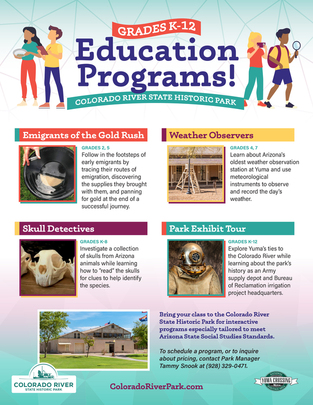Educational / Field Trip Info
Schools/Education
We offer school field trips!
K-12 - Field trips to the Colorado River State Historic Park

Interpretive Education Programs of the Colorado River State Historic Park
(Formerly the Yuma Quartermaster Depot State Historic Park)
Scheduling: To schedule a program, please call Park Manager Tammy Snook at (928) 329-0471.